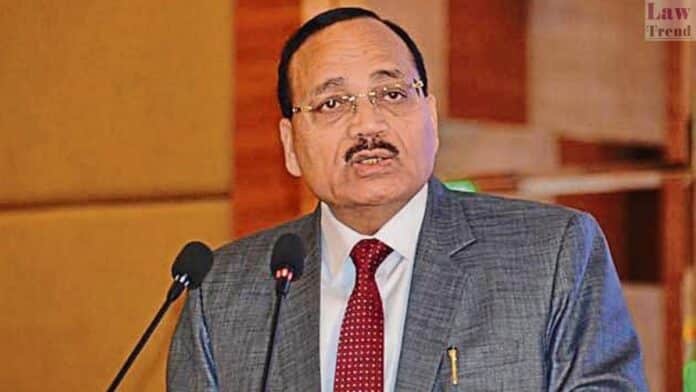Supreme Court judge and CJI-designate Justice Surya Kant has raised a sharp alarm over India’s weakening intergenerational bonds, cautioning that the country risks “losing the old world that kept us human” unless families, institutions and the law come together to uphold the dignity of senior citizens.
He was speaking on Monday at a special session on the Maintenance and Welfare of Parents and Senior Citizens (MWPSC) Act, attended by Union Social Justice and Empowerment Minister Virendra Kumar and Social Justice Secretary Amit Yadav. The audience included law students, government officials, legal services authorities and civil society groups.
Justice Surya Kant said today’s elders face emotional abandonment, rampant digital frauds, social isolation and endless litigation. The law, he stressed, must function as a “renewing framework of dignity” that protects the ageing at every stage.
“Prosperity has silently replaced proximity. Migration has opened new worlds of work, yet closed the doors between generations,” he said, describing the shift as a “civilisation tremor”.
He reflected on how Indian society once viewed ageing as ascension rather than decline, with elders acting as the “conscience of the narrative” in family life. Modernity, he said, has eroded those support structures. “We have gained new worlds but are in danger of losing the old one that kept us human.”
Recalling a recent case of a widow who fought for maintenance for nearly five decades, he said the Supreme Court used its Article 142 powers to restore her property. “Justice demanded more than technical correctness,” he said. “The promise of dignity does not expire with age.”
He called for stronger coordination between NALSA, state legal services authorities, police, social welfare officers and the Social Justice Ministry to ensure early intervention before disputes push senior citizens into courtrooms. But he added that institutions alone cannot heal the disconnect.
“The bridge between the old and the new is built by the youth,” he said, urging young Indians to help elders navigate digital systems, accompany them when needed, and ensure “no elderly person stands alone in a queue.”
Minister Virendra Kumar said Indian society has historically placed deep reverence on elders, but changing lifestyles and urbanisation have hollowed out family support.
“The idea of the old-age home was never part of our Eastern culture. It is a Western thought,” he said, noting that many parents now live in isolation as children move away in search of jobs.
He narrated experiences from his visit to an old-age home in Mount Abu run by the Brahma Kumaris, where doctors, lawyers and engineers were living alone despite having children abroad. “Money is necessary, but money is not everything,” he said.
Kumar spoke of frequent cases where elderly parents transfer property to their children only to face neglect later. Even then, he said, many mothers refuse legal action: “Do not file a case against my son.” He emphasised the need for empathy in addition to legal protection.
Social Justice Secretary Amit Yadav warned that India is approaching a massive demographic shift: the elderly population is expected to rise from 10.38 crore to 34 crore by 2050.
“The ageing must be accompanied not by vulnerability but by dignity, security and meaningful participation,” he said.
He underscored that the MWPSC Act operationalises Article 41 of the Constitution, which obligates the state to provide assistance in old age. But laws alone, he cautioned, cannot guarantee wellbeing. “Laws must be lived and dignity must be felt. The primary objective must be to foster a compassionate, responsibility-driven mindset within families.”
Yadav highlighted the growing digital divide, which leaves many seniors vulnerable to fraud, misinformation and exclusion as public services migrate online. Young family members, he said, can play a crucial role by helping with digital payments, medical appointments, welfare schemes, pensions and property decisions.
He also referred to the ministry’s MoU with NALSA to expand legal literacy camps across India, ensuring seniors know how to protect their property, seek maintenance and use grievance redressal mechanisms.
Justice Surya Kant closed with a reminder that India’s future rests partly on how it treats its elders: “We must renew the promise of dignity. And that promise, once made, must never fade with age.”




